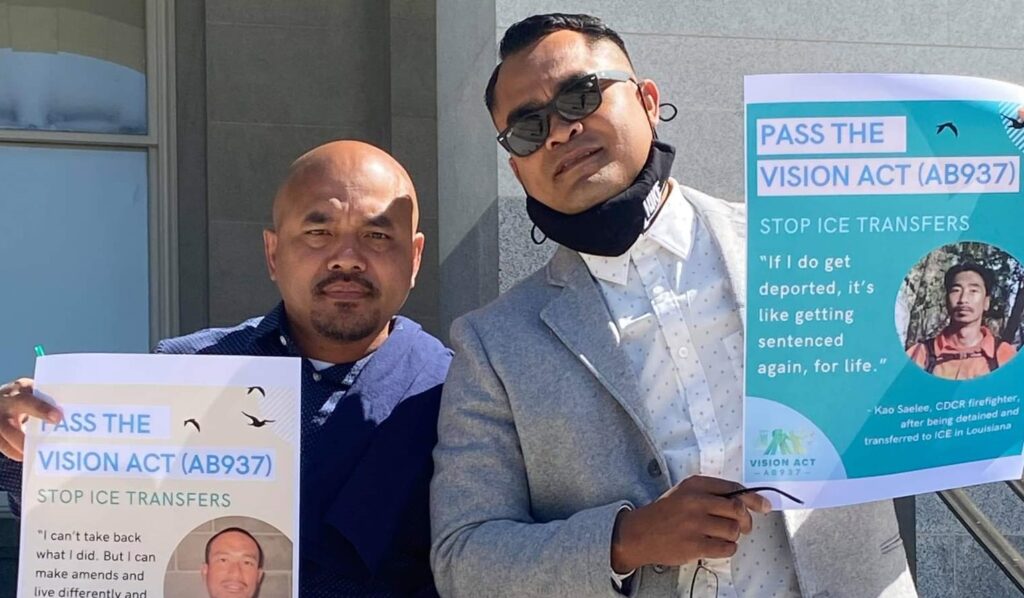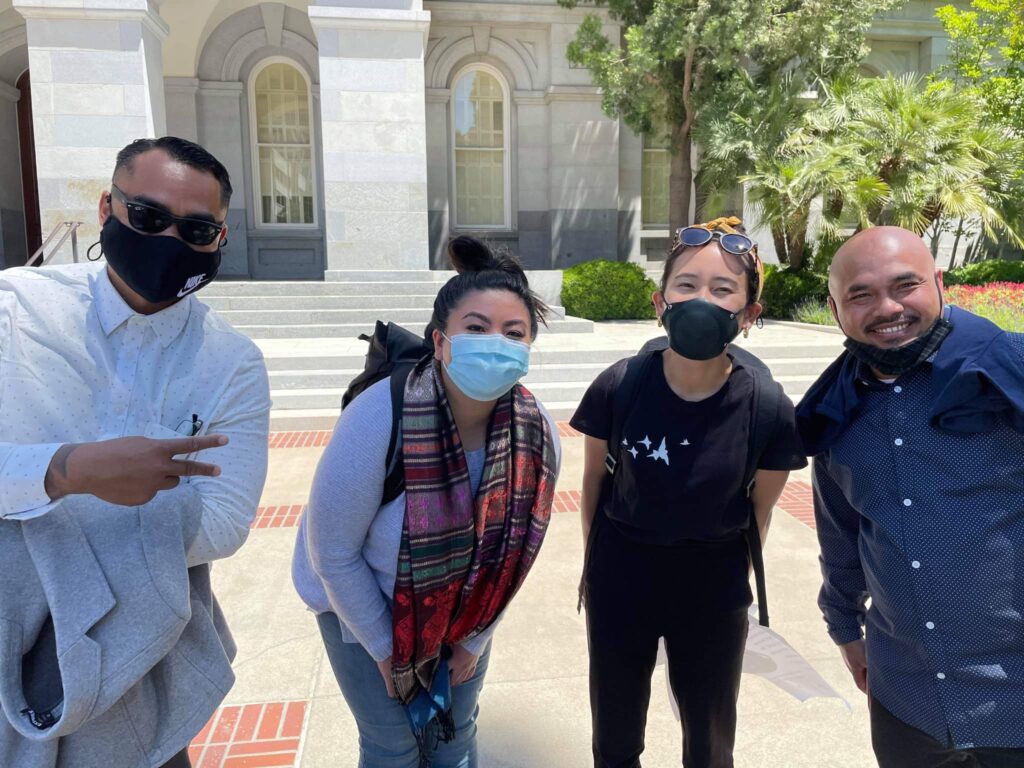September 28, 2021 IN: Community Stories, Our Voices
Tith’s and Chanthon’s Stories: Forging a friendship, strengthening their communities

Listen to Tith’s and Chanthon’s stories here.
Tith Ton’s parents were farmers in their homeland of Cambodia. When the Khmer Rouge took over, they were forced to work in a labor camp, where Tith was born. When the Vietnamese took over, he and his family fled through the jungles.
Tith recounts how his mother had to hold him so tight to keep him from crying and signaling their location. His cries soon quieted down to a silence that left them thinking he was dead. They tucked him under a jungle leaf and continued their escape, but his father turned around to double-check and was relieved to find him still alive. The same couldn’t be said for Tith’s entire family. “I lost half my bloodline to the Khmer Rouge,” Tith says.
***
Chanthon Bun was born during the Cambodian New Year in the same province as Tith. During the Khmer Rouge takeover, his uncles were all soldiers, and his mother followed them to take care of them. When the Khmer Rouge captured them, most of his uncles were murdered, but his mom was placed in a children’s camp that was used to separate kids and parents. Later, she would be forced to marry Chanthon’s father, who had joined the Khmer Rouge with a goal to avenge his own father’s murder and became a smuggler to escort refugees to the Thailand border.
Chanthon remembers this time of his young life very vividly: going to school at the camp, getting beaten by his teacher, the constant hunger, stealing food for his family. “What I remember most are the smells of people and the cries of people,” Chanthon shares. By the time his family made it to a refugee camp in the Philippines, his father and everyone on his father’s side of the family had been murdered.
***

Tith (left) and Bun (right) with community members at a 2021 rally in support of California’s VISION Act (photo courtesy of Chanthon Bun)
Both men describe not immediately realizing the trauma, deep pain, and undiagnosed mental health conditions that their elders carried. Upon arrival in the United States, they were resettled in under-resourced, overpoliced neighborhoods—Tith in the South Side of Chicago and Bun in Texas. Both turned to gangs to gain a sense of community and belonging, and they got mixed in with drugs, alcohol, guns, and making fast money. They saw their friends and family members getting shot. This led their younger selves to make life-changing mistakes that impact them to this day.
Tith remembers his shooting victim’s mother showing up each day of his trial.
“That hit me in my heart. She was a mom, just like my mom. It made me look at things differently because at that age, when my uncle was murdered, and I was shot, and my friend was shot, I looked at the other people as someone who was not human. I categorized them like they are nothing; I had a lot of hate for them. …. I didn’t realize that they were going through the same thing— the gangs, life in poverty. All we did was hurt each other. … I started changing my life when I had more insight. … That’s when I realized, it’s not about me no more. I’m just not hurting people. It’s the whole community, because the whole community suffers: the neighbors, the police, the justice system. It took a while to peel the layers, the years and years of trauma. It was hard. But I knew I had to change my thinking. I had to change my behavior.”
Ten years into his sentence after being convicted of armed robbery, Chanthon experienced an awakening after his grandfather passed away. He made a commitment to himself to pursue self-help and education.
“I had to rethink my life when he passed away because he was the only father I knew. … When we sit back and think about it, we took so much. Now we have to give back. … That wasn’t even my plan, to advocate. .. I can’t sit here and listen to the family speak, when I see my own sister, my own mother, in their eyes crying. My voice was the only way I can help. Becoming an advocate was heartfelt for me; it came right from the heart.This is something I care about, this is something I know helps people, this is something I know helps our community, this is something that heals our community.”
Tith and Chanthon became friends while both serving time at San Quentin State Prison in California. Both were granted early parole from Gov. Gavin Newsom. And both face the possibility of sudden deportation to a country to which they have no ties.
***
Today, Tith is a substance abuse counselor. “I’ve seen crack-ravaged communities, meth, alcohol. I knew it was the root of inner city struggles. I helped a lot of guys in prison to gain insight and have a better chance at success. It’s easy to take a life, but to save a life, that’s something that is hard to do. Help one, help five — it’s a butterfly effect. If you help one, it helps others, like a ripple. I live my life in honor of those I harmed.”
Chanthon, currently a Yuri Kochiyama Fellow with Advancing Justice Asian Law Caucus, agrees. “We’re coming out here more positive. If we were deported, our family wouldn’t be as happy as they are now. We draw them together and the positive mindset we bring—that heals them and heals our community. I believe deportation is really double punishment for our family, for us, and for our community.”
 Take action and urge your members of Congress to support the New Way Forward Act, which would provide relief to Chanthon, Tith, and their communities. A digital toolkit is available here. It includes SEAA stories, graphics, quotes, and other advocacy tools that you can use to encourage your reps to co-sponsor the bill.
Take action and urge your members of Congress to support the New Way Forward Act, which would provide relief to Chanthon, Tith, and their communities. A digital toolkit is available here. It includes SEAA stories, graphics, quotes, and other advocacy tools that you can use to encourage your reps to co-sponsor the bill.





